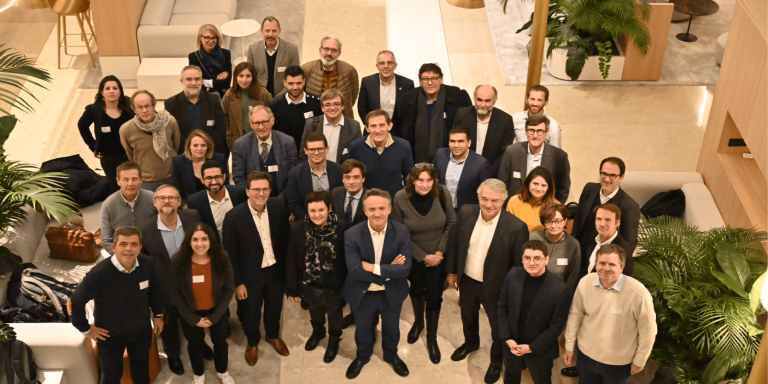
The “Ferments of the Future” challenge, led by INRAE, the French national research institute for agriculture, food and the environment, and ANIA, the French food industry association, was officially launched on September 12. Funded by the French government to the tune of 48.3 million euros as part of France 2030, it aims to accelerate the agricultural and food revolution in the service of healthy, sustainable and traceable food thanks to natural fermentation techniques. It currently brings together 34 public and private players, from academic research to cooperatives, from start-ups to large groups, and was launched operationally on December 12 with the first meeting of its Strategic Orientation Committee.
Fermentation, an age-old method of preserving food, is coming back into fashion. Fermented foods are not only found in organic stores, in fact, we consume them daily: bread, cheese, sausage, yogurt, wine…
The consumption of meat, which has increased considerably in recent decades, especially in Western countries, has consequences for human and animal health but also from an environmental point of view. A diet with more fermented foods could be the solution.
The objectives of the “Ferments of the Future” Grand Challenge
The objective of the Grand Challenge is to better understand the mechanisms involved in food fermentation in order to make them evolve if necessary, according to health issues, climate change or to adapt to consumer expectations. It also aims to develop new fermented foods, based on fruits and vegetables, pulses (lentils, chickpeas, peanuts…) but also cereals, with the objective of rebalancing the contributions between animal and vegetable proteins in our diet and to strengthen the sustainability of the latter.
It will mobilize natural fermentation techniques to accelerate the agricultural and food revolution in the service of a more sustainable diet:
- Safer because fermentation is a natural transformation process that allows a better preservation of food, limiting the use of additives;
- Healthier because fermentation can produce nutrients of interest, such as vitamins, improve our intestinal microbiota or optimize the sensory qualities of food while reducing their sugar or salt content;
- More sustainable because fermentation is a solution to adapt to variations in raw materials linked to climate change or to limit food waste.
Currently focused on food, Ferments of the Future may gradually open up to other applications, particularly in the agricultural field.
A unique innovation platform in Europe
The program will rely on the excellence of French research teams in the field of Ferments of the Future, at the national level but also via regional clusters. An innovation platform for more mature projects will be set up on the Saclay plateau by the end of 2023.
Among the 34 public-private partners already involved in the program are
- 6 public members: INRAE (7 research platforms specialized in microbiology, food processing and data science), AgroParisTech, Institut Agro, Université Clermont Auvergne, Université Paris-Saclay, VetAgro Sup;
- 21 private members (8 start-ups, 7 VSEs/SMEs/ITs, 6 large groups): Agrial, Atelier du Fruit, Axéréal, Bel, Biogroupe, C&DAC, Danone, Eurogerm, Grandiose, Green Spot
Technologies, Greentech, Lallemand, Les Nouveaux Affineurs, Lesaffre, LIP, Nutrition & Santé Nutropy, Revobiom, Philibert Savours, ShakeUpFactory, Toopi; - 7 associate members (unions, interprofessions, technical institutes, competitiveness clusters): ACTIA, ADEPALE, ANIA, CNIEL, FEDALIM, SYFAB and Vitagora.
The scientific and technological challenges of the program
The research teams will address fundamental questions to innovate in the field of ferments and fermented foods, including:
- How to develop ferments adapted to plant-based foods? What technologies are needed to monitor microbial dynamics in fermentation processes in real time?
- How to evaluate the interest of fermented foods in the maturation of the intestinal microbiota in infants?
- How can AI be used to develop new combinations of ferments?
To address these questions, calls for projects, with an annual budget of €1.5M, will be launched (the first is planned for early 2023), to select 5-7 pre-competitive projects targeting strategic priorities. The first pre-competitive results of the Future Ferments Grand Challenge are expected by the end of 2024.
Translated from Alimentation de demain : lancement opérationnel du Grand défi « Ferments du Futur »









